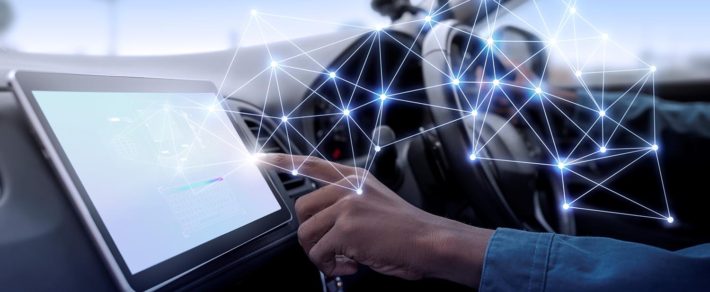Over the past decade, the automotive industry has witnessed a revolutionary shift, with the integration of Artificial Intelligence (AI) becoming commonplace. This shift from traditional vehicular mechanisms to cutting-edge technologies has redefined the driving experience and addressed the industry’s key challenges. Here, we see some groundbreaking innovations that have shaped the automotive landscape over the past ten years.
Level 3 Automation
In 2020, Tesla boldly stepped into the future with its Full Self-Driving (FSD) package, signaling a new era in Level 3 Automation. This breakthrough was soon echoed by other industry giants like BMW, Audi, and Volvo, who followed suit by introducing autopilot features. The Automated Driving System (ADS) became the linchpin, assuming control of all safety-critical functions, paving the way for the eventual realization of fully autonomous vehicles.
Automotive Internet of Things (IoT)
The concept of the IoT found its way into the automotive realm, creating a connected ecosystem. Electronics, sensors, gateways, actuators, and platform hubs interacted through wireless networks, ushering in unprecedented connectivity. In 2014, Apple CarPlay and Android Auto emerged as game-changers, allowing drivers to integrate their smartphones with their vehicle’s infotainment systems, turning cars into smart, interactive hubs.
Augmented Reality (AR)
AR took center stage, with cars now equipped with systems that use computers to provide drivers with supplementary real-time information. Speed, direction, and vital surroundings were presented in a visually augmented manner. What’s more, AR technology plays a crucial role in enhancing road safety by highlighting potential hazards, thus reducing the risk of accidents.
Carbon Neutrality of E-Fuel
In pursuit of environmental sustainability, the automotive industry started decarbonization. A notable innovation on this front is the development of e-fuel, a promising alternative to address global carbon emissions concerns. This forward-looking approach demonstrates a commitment to greener practices and signifies a noteworthy stride toward a more sustainable automotive future.
V2V and V2I Communication
The Internet of Things (IoT) facilitated groundbreaking Vehicle-to-Vehicle (V2V) and Vehicle-to-Infrastructure (V2I) communication. V2V communication allows vehicles to share critical information such as speed, location, and movements, enhancing road safety through collective real-time data exchange. On the other hand, V2I communication facilitated interaction between vehicles and roadside infrastructure, including traffic lights and signs, creating a more interconnected and efficient road network.
Lightweight Materials
Automakers, in their quest for efficiency and sustainability, turned to lightweight materials like carbon fiber and aluminum. This shift reduced overall vehicle weight and significantly improved performance, making cars more fuel-efficient and environmentally friendly. The adoption of these materials represents a conscientious effort to have a equilibrium between performance and environmental responsibility.
Wrapping Up
As we wrap up a decade of remarkable advancements, the automotive industry stands at the precipice of a new era. The integration of AI, coupled with innovations in connectivity, safety, and sustainability, has set the stage for a future where cars are not just modes of transportation but holistic, intelligent companions on our journeys. The road ahead is promising, filled with endless possibilities for safer, smarter, and more sustainable mobility.
At McKinney Motor Company in Albuquerque, we are passionate about car and truck innovations as well as maintenance and vehicle repair. Contact us today to see how we can help you.




